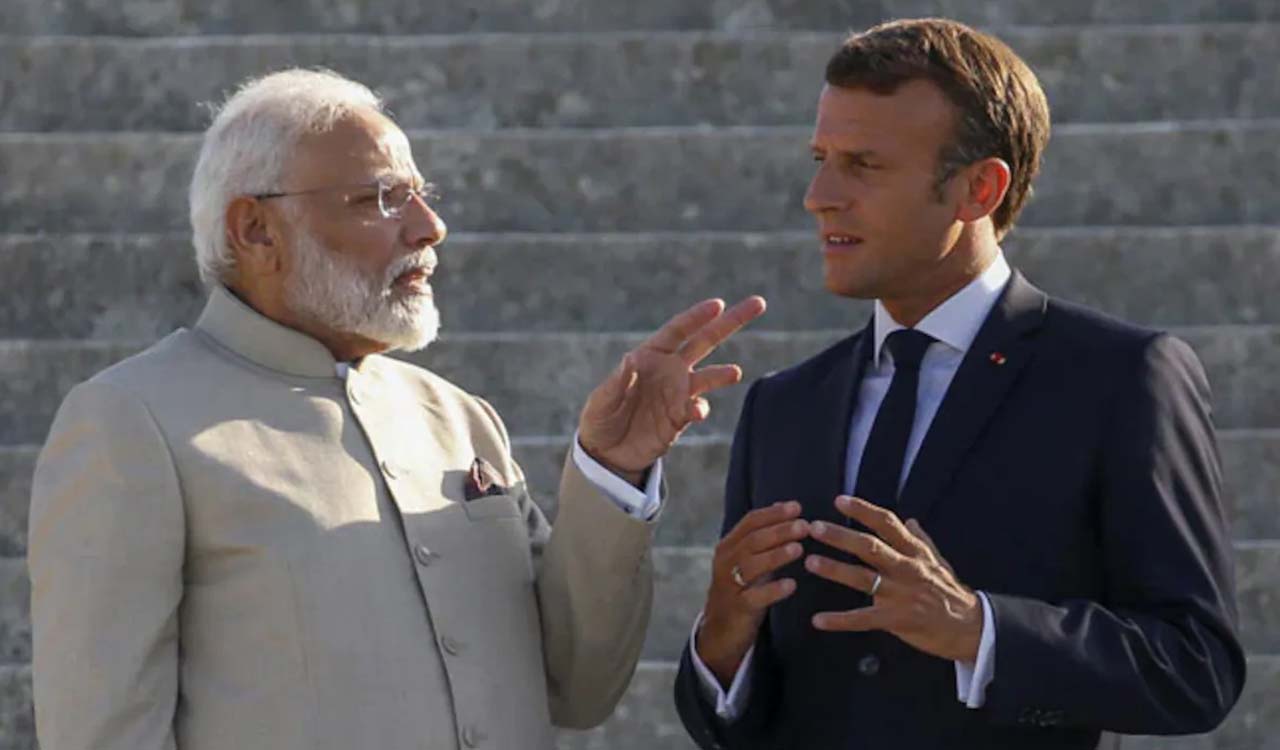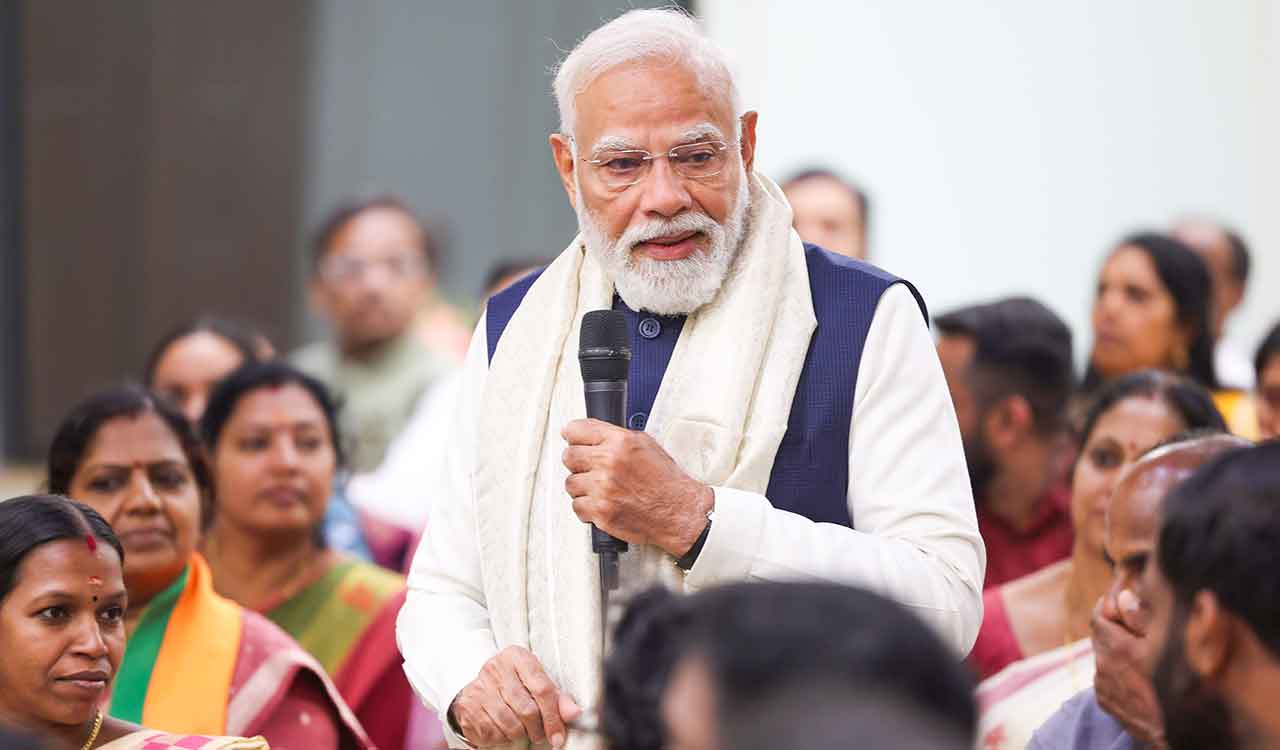Editorial: Stirring the language pot
By laying down a condition that the Union government would not release the ‘Samagra Shiksha’ funds to the southern State until it accepts the three-language policy under the NEP, the Union Minister for Education Dharmendra Pradhan has triggered an avoidable confrontation

The ongoing slugfest between the Centre and the Tamil Nadu government over the National Education Policy (NEP) has revived old wounds over the contentious three-language formula. By laying down a condition that the Union government would not release the ‘Samagra Shiksha’ funds to the southern State until it accepts the three-language policy under the NEP, the Union Minister for Education Dharmendra Pradhan has triggered an avoidable confrontation. Tamil Nadu Chief Minister MK Stalin has rightly questioned the constitutional propriety of linking the release of funds to the implementation of the three-language policy. In fact, there is no provision in the Constitution that makes the three-language policy mandatory. Apart from Tamil Nadu and other southern States, West Bengal and North Eastern States have demanded a national debate over the issue. The NEP contains several provisions that are inconsistent with the principles of federalism. It is deplorable that Dharmendra Pradhan has positioned the NEP as an end in itself without having any meaningful deliberations on the issue. The attempt to link the release of education funds due to the State to the issue of its acceptance of NEP amounts to undermining the spirit of federalism. The NEP, 2020, which has huge ramifications for the Centre-State relations has not been deliberated in Parliament. Though the three-language formula, integral to the NEP, is ostensibly aimed at promoting multilingualism, there are fears, particularly in Tamil Nadu, over the imposition of the Hindi language on reluctant people.
As education is on the Concurrent List, it requires concurrence between the Centre and States to ensure the success of various schemes. A one-size-fits-all approach undermines India’s rich linguistic diversity. Moreover, political affiliations and considerations should not come in the way of the release of funds for the education sector. No State should be subjected to discrimination if it decides not to implement the NEP in toto. Imposing Hindi on non-Hindi-speaking States in the name of a three-language formula is not the best way to promote national unity. It will be counter-productive. The agitation against the imposition of Hindi in Tamil Nadu has a long history, going back to the 1930s when it was still a part of the Madras Presidency. The primary purpose of a language is to help people communicate — among themselves and with the government. Since Hindi is limited to a geographic region, the makers of our Constitution adopted the pragmatic approach of retaining it just as one of the many official languages in the country. When it comes to communicating with each other, the argument that Hindi is the lingua franca of India is flawed. Except for Uttar Pradesh, Madhya Pradesh, Rajasthan and Bihar, almost every Indian State has a language of its own. Even in these four States, there is no standard spoken Hindi. Language should be seen as an aspirational tool to help people compete globally.
Also Read
- BJP-led Centre and DMK lock horns as language row intensifies in Tamil Nadu
- Language row: Don’t throw stones at beehive, Tamil Nadu Chief Minister MK Stalin tells Dharmendra Pradhan
- No animosity among Indian languages, says PM Narendra Modi
- Rewind: Draft UGC Regulations, wither States’ Rights
- UGC unveils draft guidelines for integrating informal, non-formal learning into formal education system
- BRS opposes new UGC draft regulations on Vice Chancellor appointments
- Editorial: Diluting federal spirit
- Editorial: Tinkering with federal spirit
- Editorial: Federal spirit under threat
- Editorial: Diluting States’ power
Related News
-
Two Belgian Malinois sniffer dogs inducted into Kothagudem district police force
12 mins ago -
Casagrand Introduces Hyderabad’s First UPARTMENT with the launch of Casagrand Mandarin in Miyapur
16 mins ago -
Cheques distributed to women at Nava Women Empowerment Centre
26 mins ago -
Jagan alleges irregularities in Tirupati laddu ghee supply during Chandrababu Naidu’s tenure
29 mins ago -
15-month-old boy etches his name on international record book in Nirmal
38 mins ago -
Gold ornaments stolen from woman at Jogipet bus station
44 mins ago -
Disqualification of BRS turncoat MLAs inevitable, elections soon, says KP Vivekanand
46 mins ago -
KTR writes open letter to CM, demands budget allocations for six guarantees
48 mins ago




